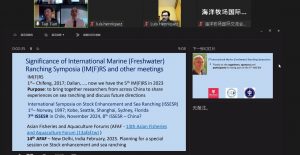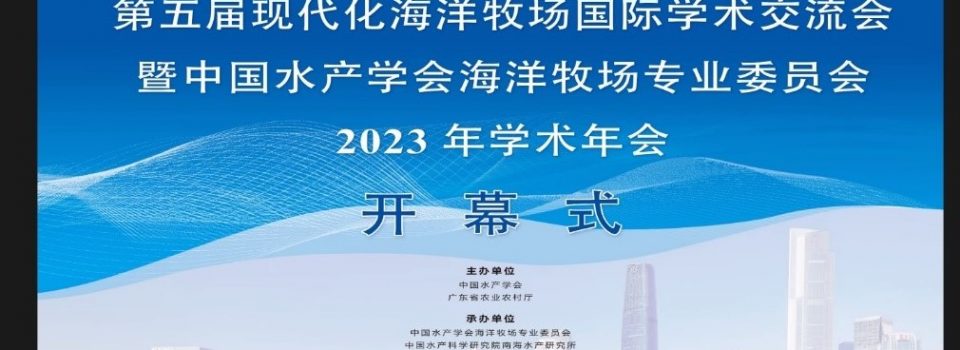Dr. Luis Henríquez-Antipa, from IFOP, speaks at 5th Modern Extensive Aquaculture International Academic Conference, Organized by the Chinese Fisheries Society.
November 26th, 2023 Within the framework of the 5th International Modern Marine (Freshwater) Ranching Academic conference, organized by The Chinese Fisheries Society and held between November 16th and 17th in Guangzhou, China.
Within the framework of the 5th International Modern Marine (Freshwater) Ranching Academic conference, organized by The Chinese Fisheries Society and held between November 16th and 17th in Guangzhou, China.
Dr. Luis Henríquez-Antipa, Fisheries Development Institute (IFOP) Repopulation and Cultivation (RyC) Department senior researcher, was invited to give the keynote talk: “Current status of stock improvement and extensive aquaculture in Chile, recent advances toward sustainable growth”.
During his talk, Dr. Henríquez-Antipa made an official invitation to participate in the 7th Stock Enhancement and Sea Ranching International Symposium – ISSESR7 Chile (International Symposium on Stock Improvement and Extensive Aquaculture), which will be held for the first time in Latin America, during November 2024, with Aquaculture Research Stocking and Culture Division Department , as its host.
According to Dr. Henríquez-Antipa: “Both the 5th International Symposium on Modern Extensive Aquaculture and ISSESR constitute two of the most important international symposia in the sciences of stocking, stock improvement, and extensive aquaculture in the world. The ISSESR symposium series hosts a select group of researchers, mainly from Northern Hemisphere and Asia, who have developed significant advances in stock improvement, aquaculture-assisted repopulation, habitat restoration, genetic management, animal ethology, legislation and social -coastal ecology within an ecosystem approach. This will be a great opportunity to assimilate international developments in stock improvement and habitat restoration urgent matter at the country level and will also allow Chilean and Latin American researchers to share their research and results in this discipline.”
